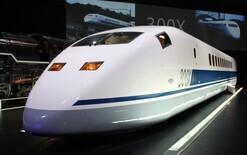Transit goes through paces
Ford has tested its Transit for accelerated ageing by simulating six months of the toughest treatment customers can dish out over a decade. Its durability tests included the equivalent of driving 11 million kilometres – or the equivalent of around the world 275 times – in extreme conditions with temperatures ranging from +40c to -40c. As the first Transit to be sold in Europe and North America, the all-new model was subjected to accelerated tests at Ford’s facilities at Lommel in Belgium and in Romeo, Michigan. READ: Most deadly NZ road At Lommel, Ford subjected the van, chassis cab and minibus versions to more than 30 tests. These included a tow general durability test at maximum weight with a fully loaded trailer. Other challenges included being driven at top speed non-stop for two months over gravel roads and through salt and mud baths. The prototypes also were tested for rust resistance in high-humidity chambers for 12 weeks and put through non-stop figures of eight for a month. Engineers drove the van more than 5,000 times over a course of potholes and bumps, and conducted a strength test by driving it at 60kph into a 140-millimetre kerb. In test labs, Ford subjected the 2.2-litre diesel engine to 46 days’ continuous high-load urban driving on specialised rigs. Component rigs were used to simulate real-world conditions to replicate a 10-year lifecycle in 30 days. The marque identified and delivered more than 100 improvements from the tests. These included redesigning the side rail on jumbo vans and strengthening the rear cross-member on chassis cabs. The all-new Transit is now on sale in New Zealand.





